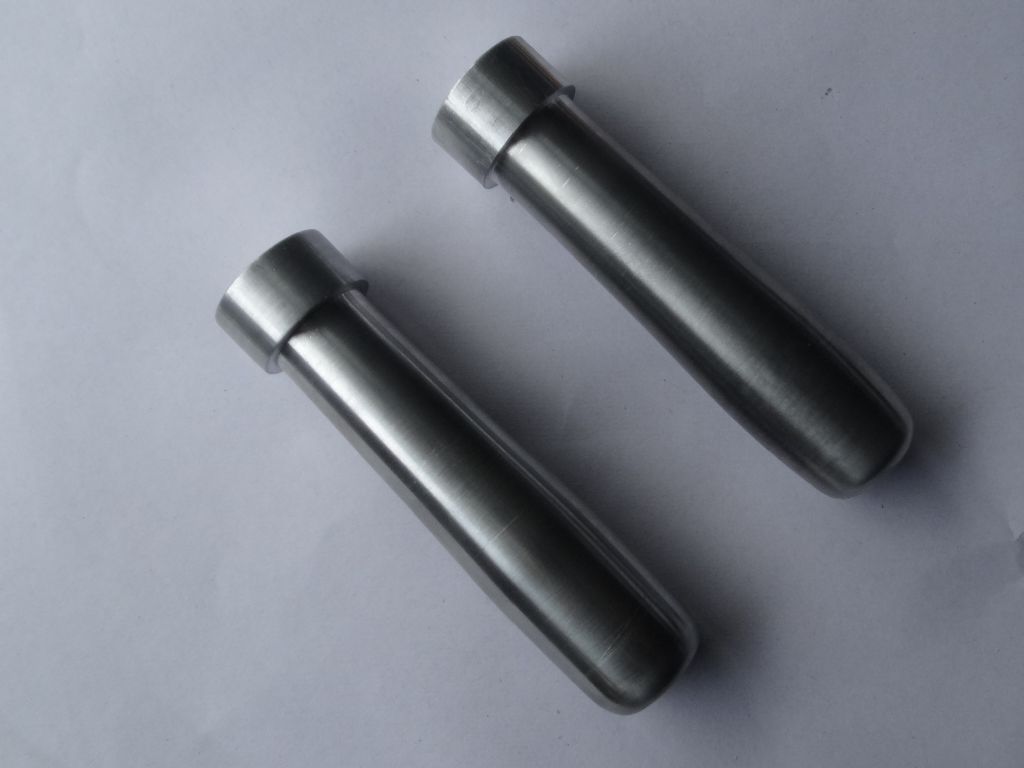Posted by Frances IoM on 02/03/2017 18:26:22:
if you are going to use the re-handled pin rather than display it then the only metal that would pass food standards would be catering grade stainless steel – steel would get wet when wiped and stain, brass I suspect would corrode
Funnily enough I got this press release a few days ago suggesting copper and its alloys are the ideal metal where hygiene matters. I didn't think it worth mentioning in MEW, but perhaps here:
Finland’s Building Information Ltd. has today issued guidelines on indoor hygiene for new build and renovation projects, describing copper as ‘the most well-known and effective antimicrobial material.’
The guidelines—part of the Finnish RT Building Information File—establish four levels of hygiene for different building types, and various measures to deliver the required standard. Antimicrobial materials for high-touch surfaces are included in the three most stringent categories, with copper singled out as the most recognised and effective antimicrobial material.
Presented at the Indoor Hygiene Seminar in Espoo, the guidelines are among the first to provide a toolset for ‘designing out infection’. They aim to increase awareness of opportunities and solutions for improving hygiene during project design and construction phases, taking account of practicalities and cost efficacy.
The information targets all parties involved in building projects, from the property owners, architects and designers to developers, contractors and users. At its core is the goal of achieving a high-functioning building that actively prevents the spread of infection. Cleaning and maintenance are highlighted as key aspects of providing a safe indoor environment, and further guidelines for these are in progress, due for publication later this year.
Antimicrobial materials are recommended for touch surfaces in the three highest hygiene categories. The most demanding level covers areas such as operating theatres, ICUs, pharmaceutical production facilities and laboratories. The next level down includes hospital reception areas and patient rooms, day care centres, airports, swimming pools and spas. The third level—still requiring a good standard of hygiene—includes schools, sports facilities and offices.
Copper is a powerful antimicrobial with broad-spectrum efficacy against bacteria and viruses, proven to rapidly destroy pathogens including influenza A, E.coli and norovirus, and resistant bacteria such as MRSA. It shares this benefit with a range of copper alloys—such as brasses and bronzes—forming a family of solid materials called ‘antimicrobial copper’. These familiar engineering materials perform their primary function—delivering hard-wearing surfaces that meet the demands of a busy clinical environment—with the additional benefit of continuously reducing bioburden and thus reducing the risk of infections spreading.
The impetus for the guidelines’ creation came from the Hygtech project group, which recently published research examining copper as an antibacterial material in a variety of facilities (hospitals, kindergartens, retirement homes and offices). Initiated by Satakunta University of Applied Sciences, the study replaced frequently-touched surfaces including door furniture, toilet flushes, grab rails and light switches with copper equivalents. Cleaning was carried out as usual in each given setting, and the researchers measured bacterial levels, comparing them with the levels from non-copper equivalents in parallel.
It concludes: ‘The present study showed that copper is a potential antibacterial material in different facilities, with different cleaning practices and usage profiles. Copper materials were efficient in reducing the total bacterial loads as well as specific indicator bacteria (Gram-negatives, S. aureus); suggesting that copper could be used also as an antibacterial material in environments other than hospitals.’
The study results—showing an average 85% reduction in bacteria in copper surfaces—align with existing data from clinical trials around the world, which have found that replacing frequently-touched surfaces with antimicrobial copper equivalents reduces bioburden by >80%. These studies have further shown that antimicrobial copper surfaces reduce the risk of ICU patients acquiring a healthcare-associated infection by 58% and improve patient outcomes.
The new guidelines will help to spread adoption of antimicrobial copper from hospitals to other building types, providing direction for those seeking to enhance hygiene in areas where people gather and infections spread.
For more information on antimicrobial copper, visit http://www.antimicrobialcopper.org.
SillyOldDuffer.






